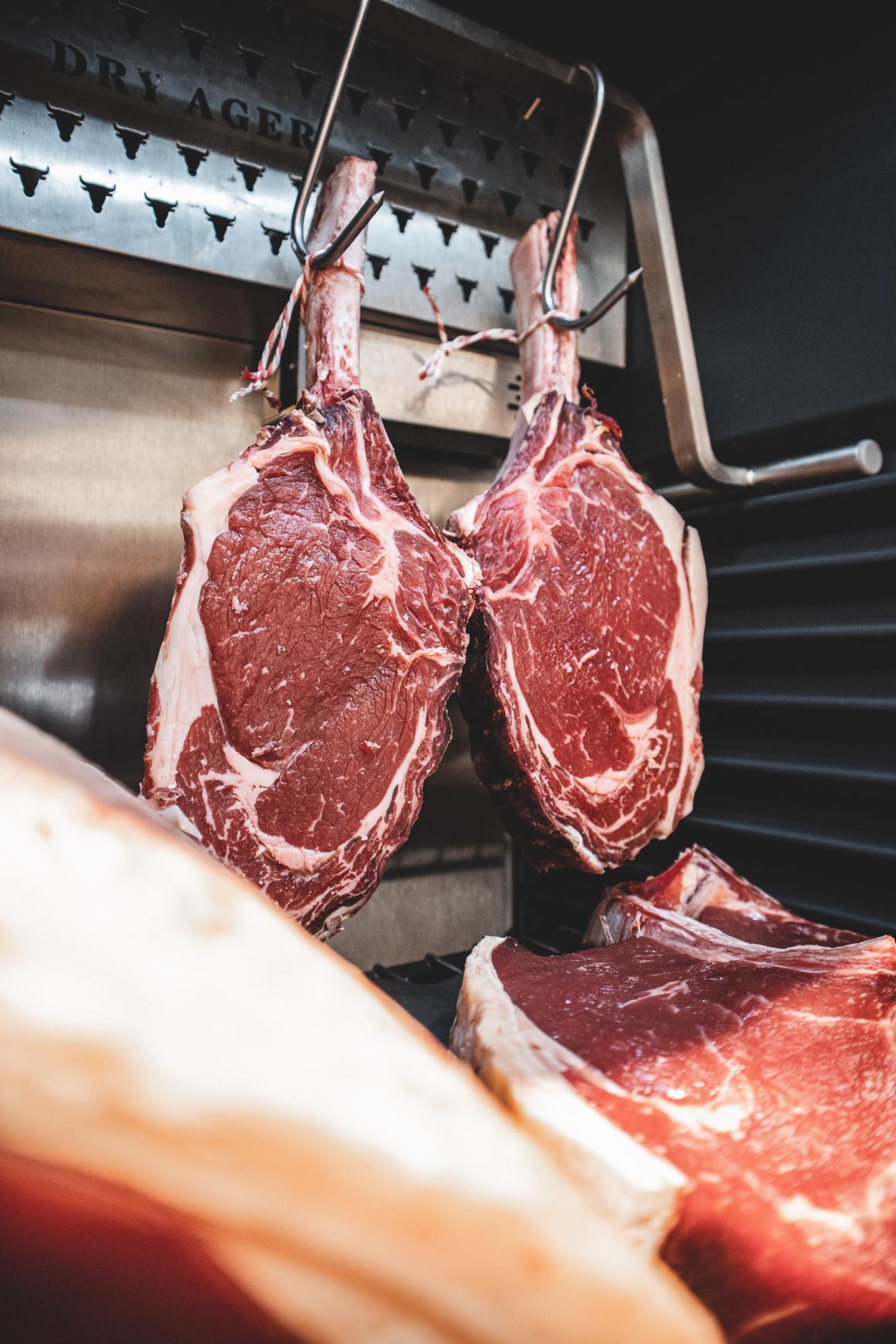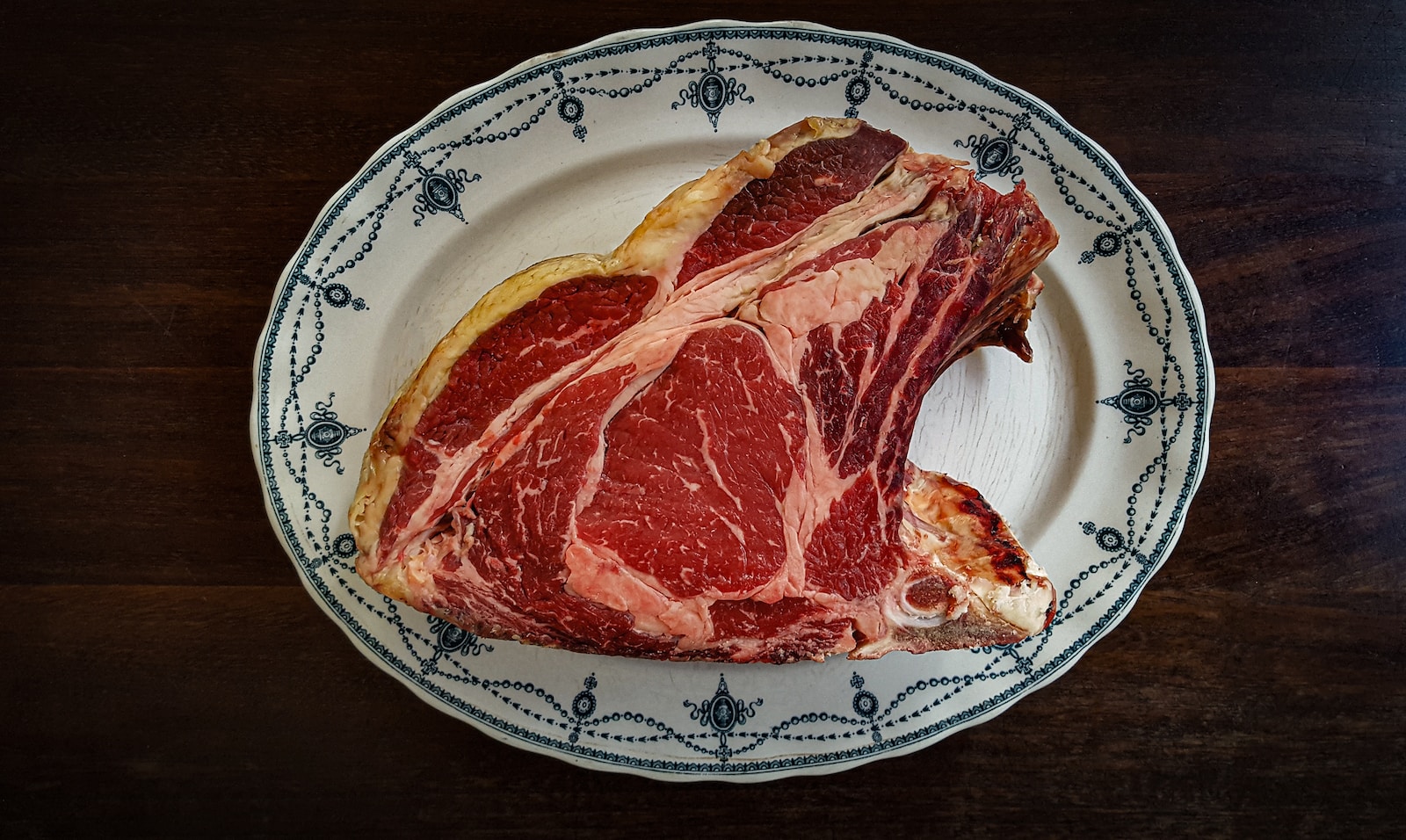Summary. The carnivore diet is the only diet out there that consists entirely of animal-products, such as meat, eggs, and some dairy. While this way of eating has its fans, some are sceptical of its sustainability over the long-term. This article looks into how safe it is to stay on the carnivore diet for long periods of time. Studies suggest that, if properly monitored, the carnivore diet can be a healthy way of eating, as long as you get the appropriate level of nutrients, vitamins, and minerals. People considering this type of diet should seriously weigh up the potential risks and benefits, seeking advice if necessary, and monitoring results closely.
Carnivore diet, a growing trend for some time, has become an increasingly popular way for people to jumpstart weight loss and sweep their health in a new and improved direction. Many wellness gurus and celebrities have even taken up the carnivore challenge in search of a healthier lifestyle. But how long is this so-called “all-meat” diet safe to do?
Conventional practice tells us that we need ample amounts of plant-based foods, vitamins, minerals, and other essential nutrients for good health. After all, we’ve seen health effects in cases of extreme veganism and vegetarianism. However, some argue that consuming animal products alone can be just as healthy as long as you’re getting adequate amounts of the essential nutrients.
How does one safely go about the carnivore diet, and over what time period should one follow it? We’re here to answers those questions and provide some insight into a carnivore diet. But first, let’s break down the basics of the carnivore plan. What practical steps should one take if they’re considering going all meat? How can one be sure their body isn’t missing out on important nutrients?
These are just a few of the questions we will aim to answer in this article. Additionally, we’ll explore the potential benefits of the carnivore diet as well as potential risks. Are you curious to learn more? Read on to find out about some of the pros and cons of the carnivore diet and how to do it safely.
History and Popularity of the Carnivore Diet

The Carnivore Diet is a way of eating that consists of only consuming animal products, most commonly meat, eggs, and dairy. It excludes all other food groups, including fruits, vegetables, legumes, nuts, and grains. Despite its simplicity, the Carnivore Diet has a long and fascinating history that stretches back over a century.
The precursor to the modern Carnivore Diet began with a German physician named Arthur Kuhn, who in 1888 wrote a book called “Natural Hygiene” which advocated an animal-only diet. Following the publication of his book, Kuhn was frequently asked to recommend a diet for health and wellbeing, and it was his belief that a diet consisting entirely of animal food was best.
Kuhn’s thinking eventually led to the creation of the Carnivore Diet, although it didn’t become popular until the late 1970s. In the late ’70s the Carnivore Diet was embraced by certain groups on the fringes of health and nutrition, who viewed the diet as an inward-looking approach to being healthy. People who followed the Carnivore Diet believed that eliminating an entire food group was the way to maximize physical and mental health. In the decades that followed, the popularity of the Carnivore Diet has waxed and waned, but it recently has experienced something of a modern revitalization.
However, there are some cautions to bear in mind when considering the Carnivore Diet, particularly in terms of how long it is safe to do for. Because the Carnivore Diet is so restrictive, it can lead to nutrient deficiencies if not done properly, which is why it is important to be aware of the potential risks.
A lack of important vitamins and minerals can have drastic repercussions for your health, so it is not recommended that anyone stay on the Carnivore Diet for an extended period of time without being monitored by a physician. It is generally accepted that the Carnivore Diet is safe to practice for up to a month or two, and after that it is best to slowly reintroduce nutrient-rich foods into your diet.
Scientific Evidence of the Health Benefits of the Carnivore Diet


The Carnivore Diet is a popular diet which consists solely of animal foods such as beef, poultry, fish, and eggs. While it may seem extreme to some, there is scientific evidence which suggests that it can be a healthy way to eat. One major benefit of the Carnivore Diet is that it is incredibly nutrient-dense. Studies have shown that it is rich in essential nutrients such as protein, vitamins, and minerals, and it is low in carbohydrates and sugar. This can help to reduce the risk of obesity, diabetes, and other metabolic diseases.
Studies in both humans and animals have shown that animal-based foods are much easier for our bodies to digest than plant-based foods. This means that the Carnivore Diet can be a great choice for those who suffer from digestive issues such as bloating or constipation.
The Carnivore Diet can also have benefits in terms of mental health. Studies have found that the high levels of protein, vitamin B12, and omega-3 fatty acids found in animal-based foods can improve cognitive function and reduce the risk of depression.
It is important to remember that the Carnivore Diet is still a relatively new approach and there is still some debate about its long-term safety. However, the good news is that most experts agree that the Carnivore Diet can be followed for a few months at a time with no adverse effects. Ultimately, the decision about how long to follow the Carnivore Diet should be made based on individual needs and preferences.
Types of Foods Permitted on the Carnivore Diet


The Carnivore Diet is gaining popularity because of its simplicity and promise of improved health. But how long is it safe to follow for? The short answer is, it really depends on the individual. It is important to do your research and be aware of the potential risks involved in following this way of eating.
The Carnivore Diet consists of only animal-based products, such as beef, pork, poultry, fish, and eggs. Any other sources of food are avoided, including plant foods, dairy, grains, and legumes.
Despite the simplicity of the diet, it is important to keep in mind that not everyone will thrive on it. Some people may not feel their best, or even worse, may experience negative health impacts. People who are already dealing with health conditions, such as diabetes, celiac disease, or kidney disease, should not follow this diet without first consulting with their doctor. In general, the Carnivore Diet is safe to follow for as long as it is necessary. However, this doesn’t mean that it is necessarily healthy in the long-term.
A good baseline to stick to is to follow the Carnivore Diet for no more than two weeks at a time. This will give your body enough time to adjust, but also allow you to come back to a more diverse way of eating if needed. During this two-week period, it is important to vary your meals and make sure that whatever you are eating is providing enough nourishment.
Overall, the Carnivore Diet can be a great way to reset your body. As long as you keep in mind that it is not meant to be followed for long periods of time, and ensure that you are taking care of all of your nutritional needs, it can be an effective and safe way to improve your wellbeing.
Potential Nutrient Deficiencies with the Carnivore Diet


The Carnivore Diet could be a great solution for those looking to clean up their diets and get back on track with their health goals. However, it’s important to remember that this diet may not be suitable for everyone, and it should be approached with caution.
Not only could you be putting your body at risk for deficiencies in essential nutrients and minerals, but the interview term of this diet could also be risky longterm. With the Carnivore Diet, you’re limiting yourself to animal-based foods such as meat, fish, and eggs, which are great sources of protein but lack the necessary vitamins and minerals found in plant-based foods.
This is why it’s important to consider supplementing with essential vitamins and minerals to ensure you’re meeting your body’s nutrient requirements. When it comes to how long an individual might safely stay on the Carnivore Diet, the answer is largely determined by individual goal and health.
For some, it may be safe to stay on for a longer-term, but for others, it might be best to consider moving to another diet plan after a few weeks or months as consuming meat-only could be too limited nutritionally for a long period of time.
If it’s to be a short-term solution, then it may be a good option, but it’s important to remember to supplement with essential vitamins and minerals to make sure you’re meeting your body’s needs. However, if you’re looking to commit long-term, it’s wise to look for a different diet plan that provides adequate nutrition.
Tips for Starting and Maintaining the Carnivore Diet


The carnivore diet is a short-term dietary intervention that allows you to focus solely on eating animal products and cutting out all plant-based items. It’s become incredibly popular in recent years and many people have been following it with great success. However, how long is the carnivore diet safe to do for?
The general consensus is that the carnivore diet should only be done for no more than six to eight weeks at a time. During this period, it’s important to monitor your health and make sure you’re still getting enough essential nutrients and minerals. After a brief period of time on the diet, it’s usually recommended you take a break and return to your normal diet.
First, be sure to consume a variety of animal proteins. Different types of animals can provide a unique mix of vitamins, minerals, and amino acids. Additionally, you should ensure your body is getting enough fatty acids, fiber, and other essential nutrition. It’s also important to look for high-quality sources of animal proteins. You want to ensure that the animals you’re consuming are being raised and handled in ethical and sustainable ways.
Overall, the carnivore diet can be a safe and healthy dietary option for short-term use. Over the long-term, it’s important to keep in mind that you still need to ensure your body is getting enough essential nutrients and vitamins from other sources. Additionally, make sure you’re getting a variety of animal proteins and seeking out sustainable, ethical sources. With a few simple tips, you can have peace of mind that you’re sticking to the carnivore diet in a safe and healthy way.
Safe Ways to Transition to the Carnivore Diet


It is becoming increasingly popular to transition to the carnivore diet, also known as the “zero-carb diet”. It consists of eating nothing but animal proteins and fats – such as beef, organ meats, poultry, fish and eggs – and eliminating all plant foods, including fruits, vegetables, grains, beans, and even nuts and seeds.
While the carnivore diet has proven to be beneficial for some people, it is important to know how long it is safe to follow before transitioning to a more balanced diet. To begin with, if you are interested in the carnivore diet, it is always best to consult a healthcare professional before beginning. The length of time you should remain on the carnivore diet depends on several factors, including your current health status, other medical issues, lifestyle, and your personal dietary needs.
For individuals with existing medical conditions, however, and for those who are trying to manage medical conditions, it is recommended to remain on the carnivore diet no more than a few days. It is also important to remember that the carnivore diet should never be a long-term lifestyle choice. To maintain a balanced diet, it is important to incorporate foods from all the food groups. Furthermore, while this type of diet may help with certain medical conditions, it is important to stay under the guidance of a healthcare professional.
Ultimately, the length of time one should stick to the carnivore diet depends on individual needs and preferences. If you are interested in this diet, talk to a healthcare professional or nutritionist before starting. Doing so can help you make sure you are getting all the necessary nutrients and that the diet is safe for you to follow.
Managing Stress While on the Carnivore Diet


The carnivore diet has been gaining traction as a way to simplify meals, reduce inflammation, and facilitate weight loss. But when it comes to managing stress while on the carnivore diet, many people have questions. How long is the carnivore diet safe to do for? And how can one manage stress while on this diet? These are valid questions that require some attention. First, the carnivore diet is a safe diet to do for extended periods of time. However, it is important to note that everyone is different, and dieticians often recommend an individualized approach.
When it comes to managing stress on the carnivore diet, there are a number of things one can do. First, it is important to focus on the nutrient-dense aspects of the diet to ensure that one is getting an adequate amount of vitamins and minerals. For example, for individuals who are eating red meat, organ meats, eggs, and dairy are a great way to ensure that one is getting enough vitamins and minerals.
In addition to nutrient-dense foods, it is also important to stay active while on the carnivore diet. Studies have shown that exercise can be an effective way to manage stress levels. Regular exercise can help to balance hormones and reduce inflammation, which can in turn help to reduce stress levels.
Research suggests that mindfulness practices can be an effective way to manage stress. Taking a few minutes a day to practice mindfulness can help to reduce stress and provide an overall sense of well-being. In summary, the carnivore diet can be a safe and effective way to manage stress levels and promote overall health. However, it is important to ensure that one is getting an adequate amount of vitamins and minerals, staying active, and monitoring mental health while on the diet. By doing these things, one can stay on the carnivore diet safely for extended periods of time and experience the many health benefits that come with this type of diet.
The End Of The Journey
There’s no doubt that the carnivore diet is a unique and fascinating way of eating — just eating meat and animal products and nothing else. But how long is the diet safe to do for? Short-term, the carnivore diet can be safe and provide health benefits to many people. It can help people lose weight, reduce inflammation, and improve mental clarity. But the same can be said about other diets. The real questions arise when asking about the long-term safety of the carnivore diet. Unfortunately, there is no scientific evidence that suggests it is safe over the long-term.
The lack of fruits, vegetables, nuts, grains, and other sources of fiber can be especially problematic for carnivore dieters. A diet that’s free of these fiber-rich foods can lead to constipation and a greater risk of developing small intestine bacterial overgrowth (SIBO). If these types of problems persist, they can lead to long-term health problems.
It’s clear that more research needs to be done to properly answer questions about the long-term safety of the carnivore diet. Until then, it’s important to remember that the carnivore diet isn’t an all-or-nothing diet. Including a few servings of plant-based foods each day may be beneficial.
In conclusion, the carnivore diet can be an interesting experiment for some people. But for others looking to follow the diet as a long-term way of eating, it’s important to consider the potential health risks associated with such an extreme diet. Check in with your doctor to make sure that the carnivore diet is right for you and that you’re getting the right nutrition.
And if you do decide to give it a try, remember to listen to your body and make sure you’re putting your health first. As always, the key to successful and long-lasting dieting is moderation and balance.
Frequently Asked Questions:
Are there any recommended time limits for following the carnivore diet?
Since scientific evidence is limited, there are no specific recommended time limits for following the carnivore diet. However, it is generally advisable to adopt a more balanced and varied eating pattern that includes a wide range of nutrient-dense foods for long-term health and well-being.
Can the carnivore diet lead to nutrient deficiencies over time?
Yes, the carnivore diet has the potential to lead to nutrient deficiencies, particularly in fiber, certain vitamins (like vitamin C and folate), minerals (such as potassium and magnesium), and phytonutrients found in plant-based foods. These deficiencies can have long-term health implications.
What are the risks associated with long-term adherence to the carnivore diet?
Long-term adherence to the carnivore diet may increase the risk of developing nutrient deficiencies, digestive issues, constipation, and potential impacts on heart health, bone health, and gut microbiome diversity. Additionally, the lack of long-term scientific data makes it challenging to assess the overall risks accurately.
Can supplements mitigate the potential nutrient deficiencies on the carnivore diet?
While supplements can provide certain missing nutrients, they cannot fully compensate for the wide range of nutrients found in a varied and balanced diet. Whole foods, including fruits, vegetables, whole grains, and legumes, offer unique combinations of nutrients that supplements cannot replicate.
What is the recommended approach for transitioning away from the carnivore diet?
If you decide to transition away from the carnivore diet, it is advisable to do so gradually and under the guidance of a healthcare professional or registered dietitian. They can help you reintroduce a wider range of foods while ensuring nutritional adequacy and addressing any potential digestive concerns.















